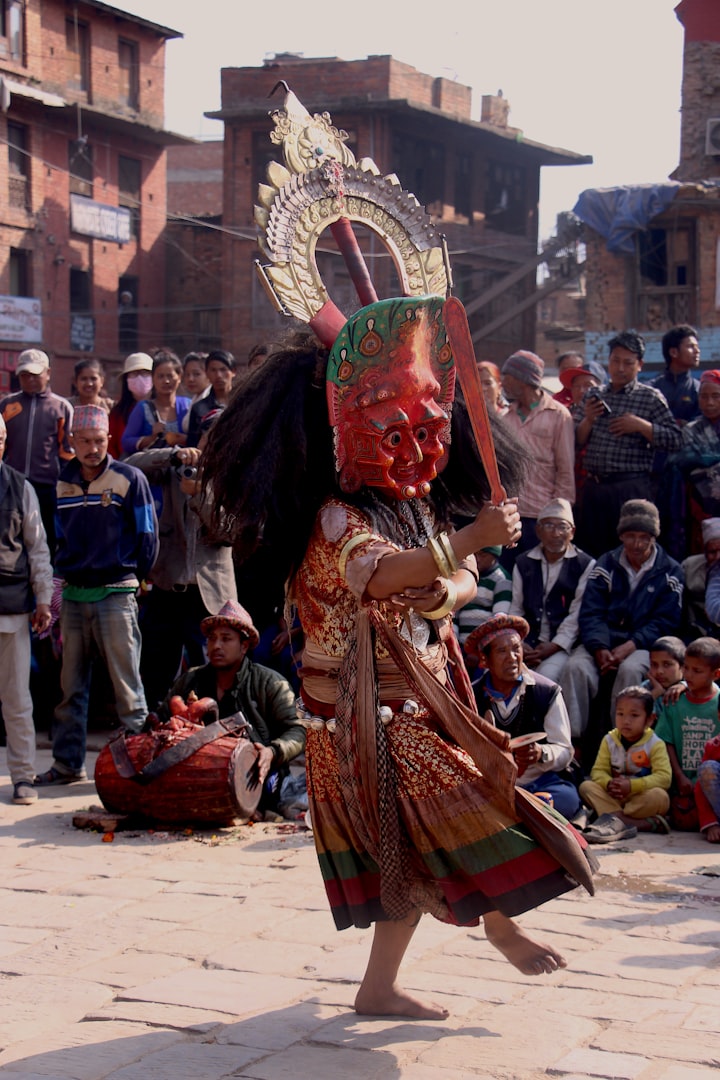Loss of Cultural Heritage
Echoes of the Ancestors

In the heart of a vast and untouched wilderness, the Awanaki tribe had thrived for centuries. Their traditions were as ancient as the towering trees that surrounded their village, and their connection to the land ran as deep as the roots that anchored them to their ancestral home.
Among the Awanaki was a young woman named Kiona. She had grown up listening to the stories of her people, passed down through generations like precious gems of wisdom. The rhythms of the river, the rustling of leaves, and the songs of the birds were the music of her soul. Her people revered the land as a living entity, and every aspect of their existence was intertwined with its rhythms.
But as the years went by, the world around the Awanaki began to shift. The winters grew shorter, and the summers stretched longer. The river that had sustained them for generations started to dwindle, its waters diminishing with each passing year. The once reliable signs of nature's cycles became unpredictable, and the balance that had shaped their lives for so long began to unravel.
Kiona, now a young woman, watched with a heavy heart as the land she loved underwent a transformation she could not fully comprehend. The snow-capped peaks that had once guarded their valley were now bare, and the riverside that had been a hub of life was now a mere trickle.
One evening, as the sun painted the sky in hues of gold and pink, Kiona's grandmother, Mawena, beckoned her to sit by the fire. The flickering flames cast shadows on the wrinkles etched on Mawena's face, each line a testament to a lifetime spent in harmony with the land.
"Kiona," Mawena began, her voice a gentle murmur, "our land is changing. The spirits of our ancestors whisper of a time when the earth was in balance, when the seasons flowed like a melody. But now, the melody is shifting, and we must listen closely to understand its new tune."
Kiona's brow furrowed with worry. "Grandmother, what can we do? Our traditions, our way of life—they are intertwined with this land. If it changes, what will become of us?"
Mawena reached out, placing a comforting hand on Kiona's. "Change is a part of life, my dear. Our people have faced challenges before, and we have adapted. But this time, we must also protect our stories, for they are the threads that weave our culture together."
As the seasons turned, Kiona's concerns deepened. The river that had once been a lifeline had shrunk to a mere stream, and the wildlife that had once roamed freely now struggled to find sustenance. Kiona watched as her people made efforts to adapt, altering their hunting patterns and searching for new sources of nourishment. Yet, the sense of loss hung heavy in the air, a tangible ache that no amount of adaptation could fully ease.
One day, a group of Awanaki elders gathered beneath the ancient council tree, their faces etched with a mixture of grief and determination. Kiona joined them, her heart heavy with a sense of urgency. It was time to make a difficult decision—one that would shape the future of their people.
Elder Yuna, her voice steady and wise, addressed the assembly. "My brothers and sisters, our land is changing, and with it, the very essence of our culture. The stories that have been passed down for generations—the tales of our ancestors, the songs of the land—are at risk of fading away."
Kiona listened, her heart aching as she realized the gravity of their situation. Elder Yuna continued, "It is with heavy hearts that we must consider leaving this place, our home, and seek a new land where our traditions can be preserved. Our ancestors did not build us a legacy to be erased by changing winds. We owe it to them and to our future to find a land where our roots can take hold once more."
As the days turned into weeks, the Awanaki community prepared for their journey—a journey of both physical and cultural migration. They carried with them the stories, the songs, the dances that had defined their people for generations. Each step was heavy with the weight of loss, but also brimming with the hope of preservation.
Kiona, walking beside her people, felt the bittersweet pull of the land she was leaving behind. But as she looked ahead, her gaze fixed on the horizon, she felt a surge of determination. The legacy of her people would not end with the changing winds; it would find new roots in a land yet to be discovered.
Years later, as the Awanaki settled in a new land, Kiona stood by the riverbank of their new home, watching as the water flowed with a different rhythm. She thought of her grandmother's words and the sacrifices her people had made. The stories of their ancestors had not been lost; they had been woven into the fabric of their journey, an unbreakable bond that had carried them through the challenges of change.
Kiona, now a storyteller in her own right, began to share the tales of the Awanaki's journey—stories of resilience, adaptability, and the importance of holding onto culture in the face of adversity. And as the children of the Awanaki listened to her words, they felt the echo of their ancestors, whispering through time, guiding them as they embraced a new chapter while keeping alive the heart of who they were.





Comments
There are no comments for this story
Be the first to respond and start the conversation.